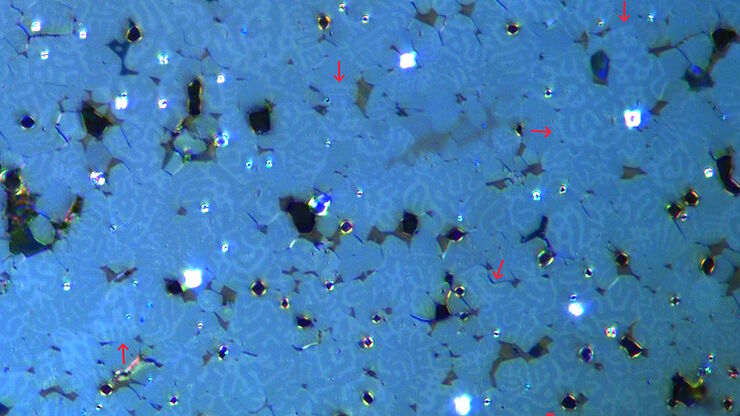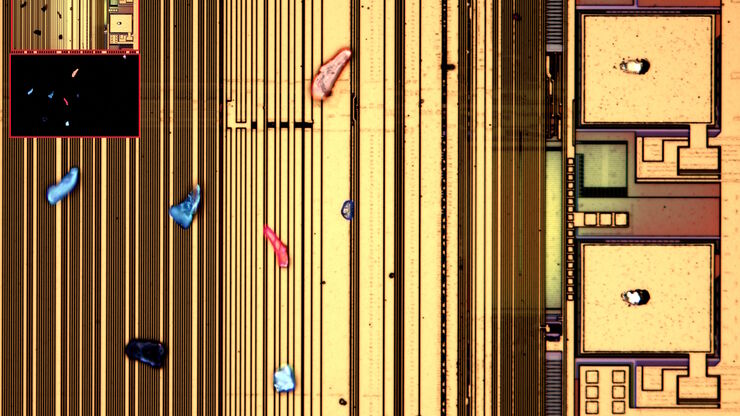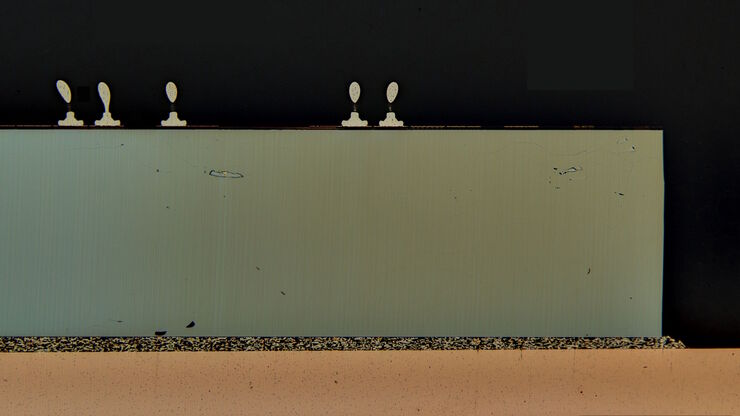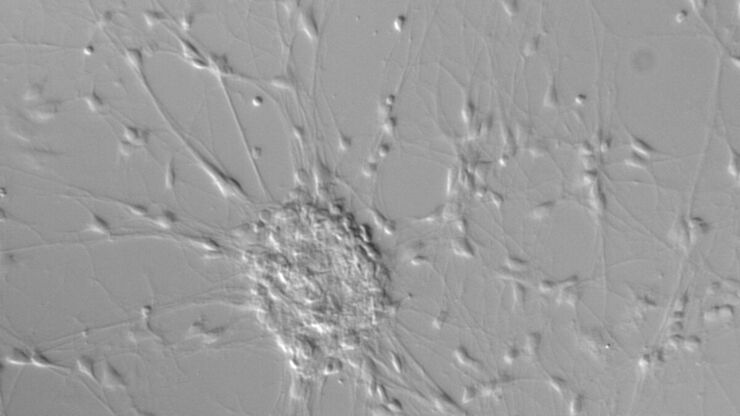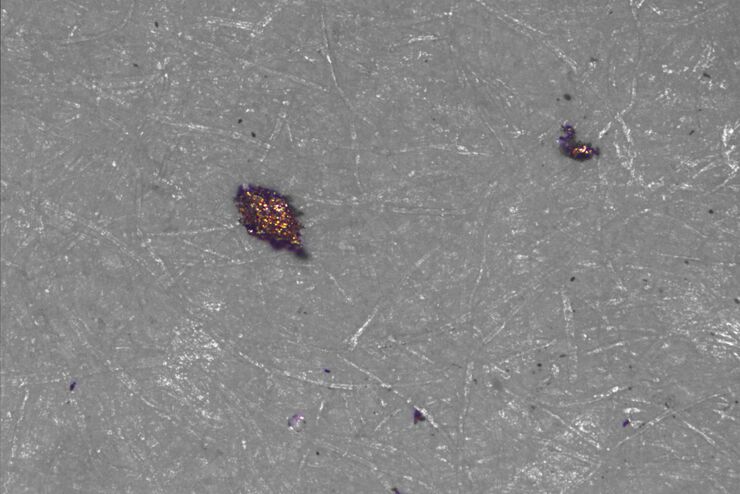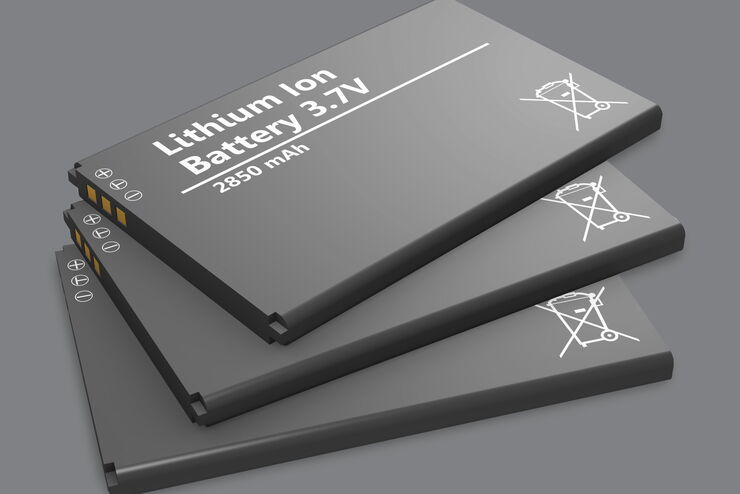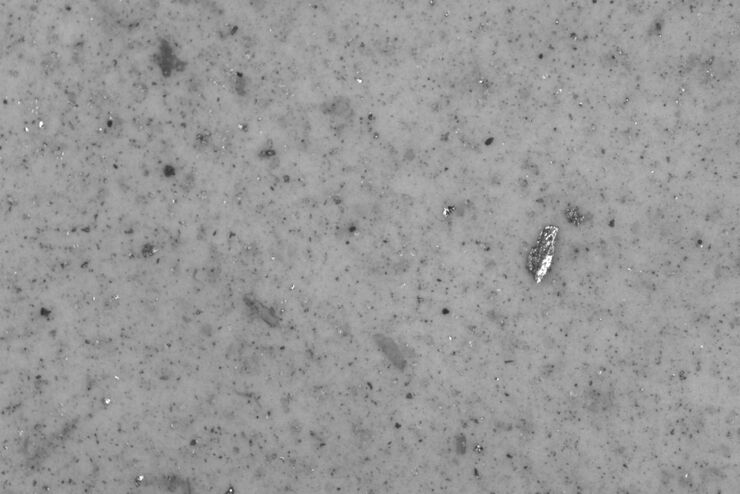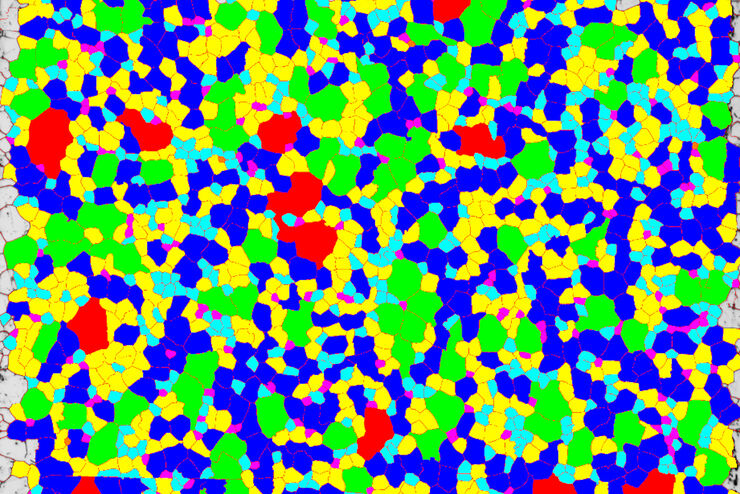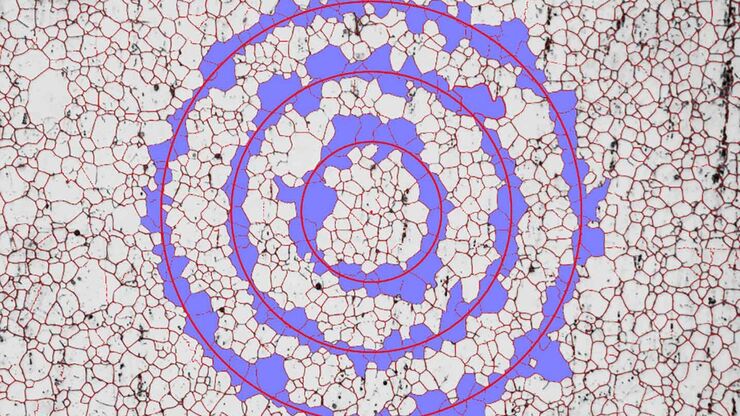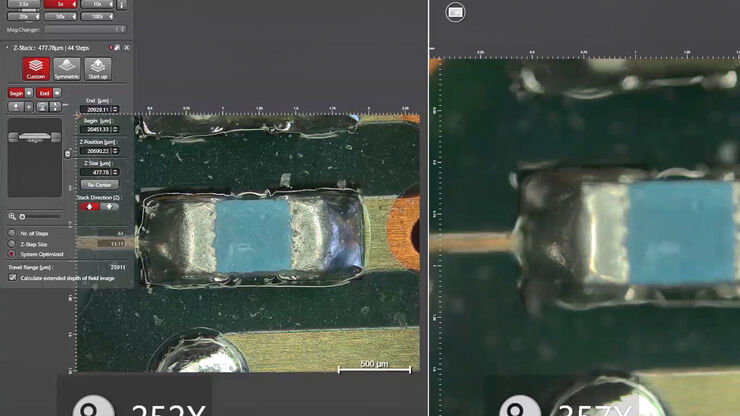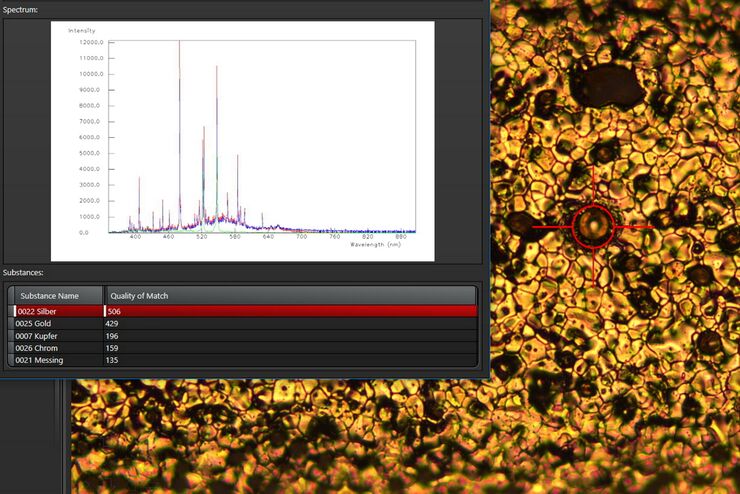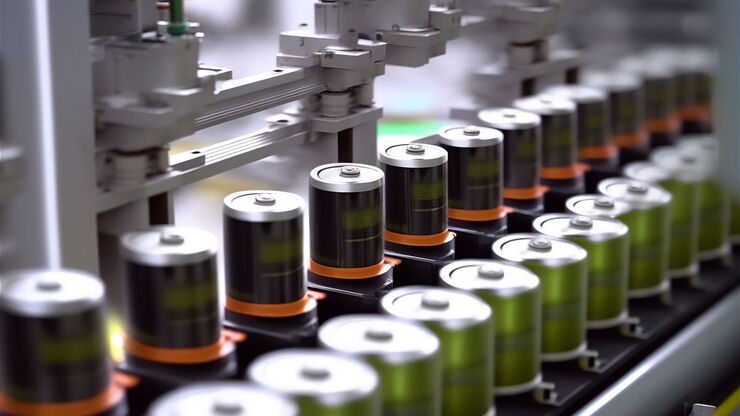Leica DM4 M e DM6 M
Microscópios verticais
Microscópios óticos
Produtos
Página inicial
Leica Microsystems
Leica DM4 M e DM6 M Microscópio vertical de materiais
Tudo definido e memorizado
Leia os nossos artigos mais recentes
Rapidly Visualizing Magnetic Domains in Steel with Kerr Microscopy
The rotation of polarized light after interaction with magnetic domains in a material, known as the Kerr effect, enables the investigation of magnetized samples with Kerr microscopy. It allows rapid…
6-Inch Wafer Inspection Microscope for Reliably Observing Small Height Differences
A 6-inch wafer inspection microscope with automated and reproducible DIC (differential interference contrast) imaging, no matter the skill level of users, is described in this article. Manufacturing…
Visualizing Photoresist Residue and Organic Contamination on Wafers
As the scale of integrated circuits (ICs) on semiconductors passes below 10 nm, efficient detection of organic contamination, like photoresist residue, and defects during wafer inspection is becoming…
Key Factors for Efficient Cleanliness Analysis
An overview of the key factors necessary for technical cleanliness and efficient cleanliness analysis concerning automotive and electronics manufacturing and production is provided in this article.
Structural and Chemical Analysis of IC-Chip Cross Sections
This article shows how electronic IC-chip cross sections can be efficiently and reliably prepared and then analyzed, both visually and chemically at the microscale, with the EM TXP and DM6 M LIBS…
Differential Interference Contrast (DIC) Microscopy
This article demonstrates how differential interference contrast (DIC) can be actually better than brightfield illumination when using microscopy to image unstained biological specimens.
Factors to Consider for a Cleanliness Analysis Solution
Choosing the right cleanliness analysis solution is important for optimal quality control. This article discusses the important factors that should be taken into account to find the solution that best…
Efficient Particle Counting and Analysis
This report discusses particle counting and analysis using optical microscopy for cleanliness of parts and components. Particle counting and analysis is a critical part of quality assurance in the…
Quality Control Under the Microscope
Fast-rising demand for electric vehicles is one of the market’s main drivers, but there are other hotspots of growth, including the rise in renewable energy installations, such as photovoltaic panels,…
Cleanliness of Automotive Components and Parts
This article discusses the ISO 16232 standard and VDA 19 guidelines and briefly summarizes the particle analysis methods. They give important criteria for the cleanliness of automotive parts and…
How Industrial Applications Benefit from Fluorescence Microscopy
Watch this free webinar to know more about what you can do with fluorescence microscopy for industrial applications. We will cover a wide range of investigations where fluorescence contrast offers new…
Challenges Faced When Manually Rating Non-Metallic Inclusions (NMIs) to Determine Steel Quality
Rapid, accurate, and reliable rating of non-metallic inclusions (NMIs) is instrumental for the determination of steel quality. This article describes the challenges that arise from manual NMI rating,…
Inverted Microscopes for Grain Size Analysis: Three Factors to Consider
Microscopic steel grain size analysis is useful in determining the quality of steel alloys for a given purpose such as building bridges vs railroad rails. This webinar will describe the preparation of…
Top Issues Related to Standards for Rating Non-Metallic Inclusions in Steel
Supplying components and products made of steel to users worldwide can require that a single batch be compliant with multiple steel quality standards. This user demand creates significant challenges…
Rate the Quality of Your Steel: Free Webinar and Report
This webinar and report describe optimal microscopy solutions for rating steel quality in terms of non-metallic inclusions and reviews the various international and regional standards concerning…
Metallography – an Introduction
This article gives an overview of metallography and metallic alloy characterization. Different microscopy techniques are used to study the alloy microstructure, i.e., microscale structure of grains,…
How to Adapt Grain Size Analysis of Metallic Alloys to Your Needs
Metallic alloys, such as steel and aluminum, have an important role in a variety of industries, including automotive and transportation. In this report, the importance of grain size analysis for alloy…
How To Create EDOF (Extended Depth of Focus) Images
Watch this video to see how you can rapidly record sharp optical microscope images of samples with a large height variation. This is done with the optional Extended Depth of Focus (EDOF) function of…
See the Structure with Microscopy - Know the Composition with Laser Spectroscopy
The advantages of a 2-in-1 materials analysis solution combining optical microscopy and laser induced breakdown spectroscopy (LIBS) for simultaneous visual and chemical inspection are described in…
Fabricação de baterias
A fabricação de baterias tem vários desafios importantes relacionados à inspeção. São necessárias soluções para a preparação de amostras e para a análise microscópica visual e química.
Metalografia
Os microscópios metalográficos da Leica são otimizados para a análise microestrutural de metais, ligas e outros materiais.
Campos de aplicação
Automotivo e transporte microscópios
Nós, aqui na Leica, desejamos ser seu colaborador com o qual pode confiar, a fim de orientá-lo quanto às soluções ideais em captura e processamento de imagens, para que você possa estar à frente da…
Classificação da qualidade do aço
Uma eficiência aprimorada para a classificação de inclusões não metálicas permite que fornecedores de aço e fabricantes industriais verifiquem a qualidade do aço em menos tempo, para garantir o…
Ciência forense
Como cientista forense, seus microscópios e equipamentos de imagem devem fornecer precisão, qualidade e reprodutibilidade de resultados para garantir sucesso ao examinar a evidência. A Leica…
Metalografia
Os microscópios metalográficos da Leica são otimizados para a análise microestrutural de metais, ligas e outros materiais.
Limpeza técnica
Para fabricantes de produtos eletrônicos e industriais, bem como aplicações farmacêuticas não regulamentadas, as soluções para uma limpeza técnica eficiente oferecem vantagens significativas.
Microscópios de análise de materiais
A análise de materiais requer soluções de microscopia para a aquisição de imagens, medição e análise de recursos em diversos materiais, como ligas metálicas, semicondutores, vidro e cerâmica, bem como…
Mercados de microscopia industrial
Maximizar o tempo de atividade e atingir as metas de forma eficiente ajuda seu resultado final. As soluções de microscópio Leica podem fornecer uma visão dos menores detalhes da amostra, bem como…
Indústria metalúrgica
As soluções de microscopia da Leica para a indústria metalúrgica são úteis para avaliar a qualidade dos materiais e assegurar a conformidade com as normas aplicáveis.
Fabricação de baterias
A fabricação de baterias tem vários desafios importantes relacionados à inspeção. São necessárias soluções para a preparação de amostras e para a análise microscópica visual e química.
